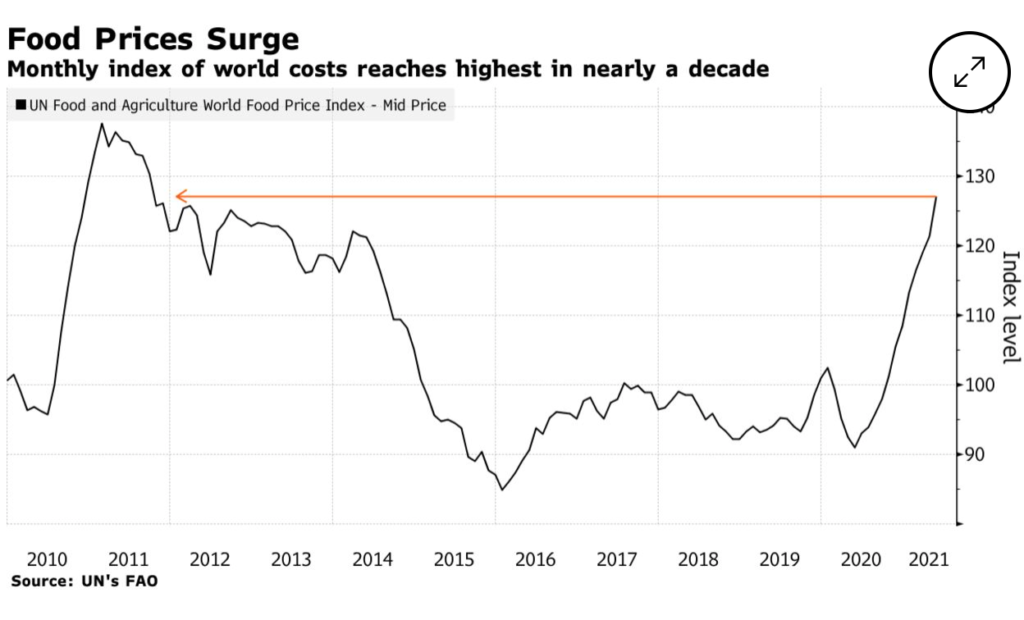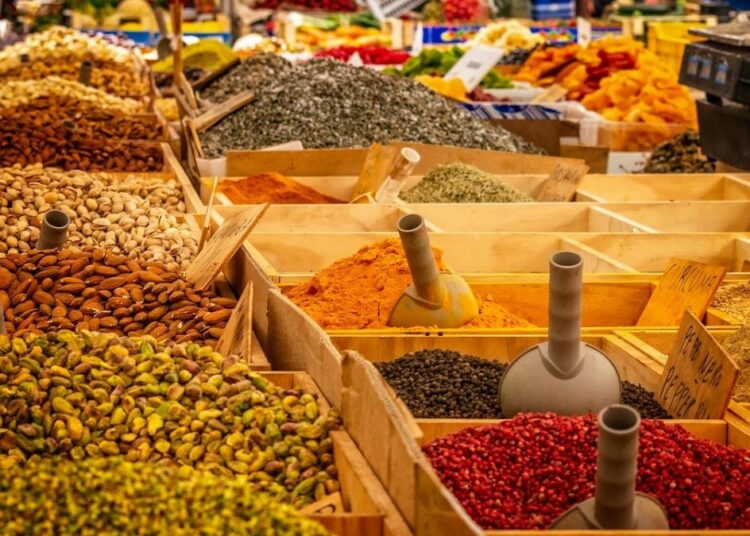Last updated on June 9th, 2021 at 02:46 pm
Households across the world could be bracing for an even tighter food budget.
According to the United Nations, world food costs climbed for a 12th straight month in May; its longest stretch in a decade. While international economies continue to deal with the struggles of the Covid-19 crisis, other factors are at play which may lead to broader inflation: South American corn, coffee, soybean and sugar crops have been ravaged by drought, and “unpredictably huge” purchases by China have had devastating impacts on international grain supplies which as boosted costs for livestock producers.

In January 2011, riots took place in the Middle East and South Asia due to surging food costs which hit an all-time high. Those outbursts came on the heels of the 2008 food scare in which demonstrators took to the streets in Haiti, Senegal, and Bangladesh. All in all, some 30 nations were embroiled in rioting during that time due to climbing food prices.
Said Abdolreza Abbassian, senior economist at the UN’s Food and Agriculture Organization, “We have very little room for any production shock. We have very little room for any unexpected surge in demand in any country. Any of those things could push prices up further than they are now, and then we could start getting worried.”
Whether harvests in the United States, Canada, and Europe can make up for crop shortfalls will be dependent upon what kind of weather the Northern Hemisphere experiences this summer.
While world hunger continues to rise, it has been exacerbated by worldwide disruptions due to weather, political conflicts, and – within the last year – the effects of Covid-19. In February, restrictions caused a “bottlenecking” in global trade and a shortage of empty shipping containers.
But Abbassian is quick to mention that this is not the same situation as a decade ago, when oil prices neared $150 a barrel which is double current levels. “We are not in the situation we were back in 2008-10 when inventories were really low and a lot of things were going on. However, we are in sort of a borderline. It’s a borderline that needs to be monitored very closely over the next few weeks, because weather is either going to really make it or create really big problems.”




















Discussion about this post